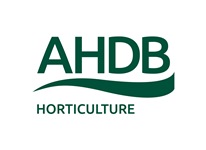All entries for Friday 11 March 2016
March 11, 2016
Aphids forecast to fly earlier than average this spring
Aphid pests of brassica, cereals and potatoes are forecast to fly two to three weeks earlier than average this spring, according to the AHDB Aphid News service.
The long run of aphid data from the suction-trap network, managed by Rothamsted Research, combined with the long run of weather data available from the Met Office and others, make it possible for the start of aphid flights and aphid abundance in spring and early summer to be forecast.
The forecasts for 2016 are now available to download from the AHDB website. The forecasts for brassica and potato cover peach–potato aphid, potato aphid and cabbage aphid.
January and February temperatures critical
The mean temperature in January and February is critical in driving the results arising from the aphid forecasting service. Confidence is greatest for aphid species which pass the winter in active stages, rather than as cold-hardy eggs, as they are able to take advantage of warm conditions. Mark Taylor of Rothamsted Research, who compiles the AHDB forecasts, said: “Over the last 50 years, the mean January/February temperature has shown the strongest correlation with the timing and size of aphid migrations. To date, our experience shows that there is little impact from temperatures in November/December or March/April.”
Key findings from the 2016 forecasts
The temperature in January and February 2016 was higher than the long-term average throughout much of England – by around 1 to 1.5°C. As a result, aphid flights are forecast to arrive two to three weeks earlier than average. However, the temperatures in Scotland were much nearer to the long-term averages.
Uncharted territory
December 2015 saw recorded-breaking temperatures – with temperatures recorded at over 4°C above the long-term average. It was the warmest December since 1934 and resulted in the highest monthly anomaly for any calendar month since 1910. Mr Taylor said: “Along with the remarkable warmth, there were hardly any frosts and it was also very wet. All in all, the weather in December was extremely interesting and way outside anything experienced by the aphid forecasting team. We know that the extreme cold snap in December 2010 had little influence on the first flights in 2011 but we await with interest to see if the warm December in 2015 causes the first flights to deviate significantly from those forecast.” The exceptionally mild weather resulted in two AHDB Aphid News bulletins being published over the winter months. Not only was late flight activity recorded in suction traps but field reports of aphids multiplying and moving within many autumn-sown crops were also received by Rothamsted Research.
 Rosemary Collier
Rosemary Collier

 Please wait - comments are loading
Please wait - comments are loading
 Loading…
Loading…
